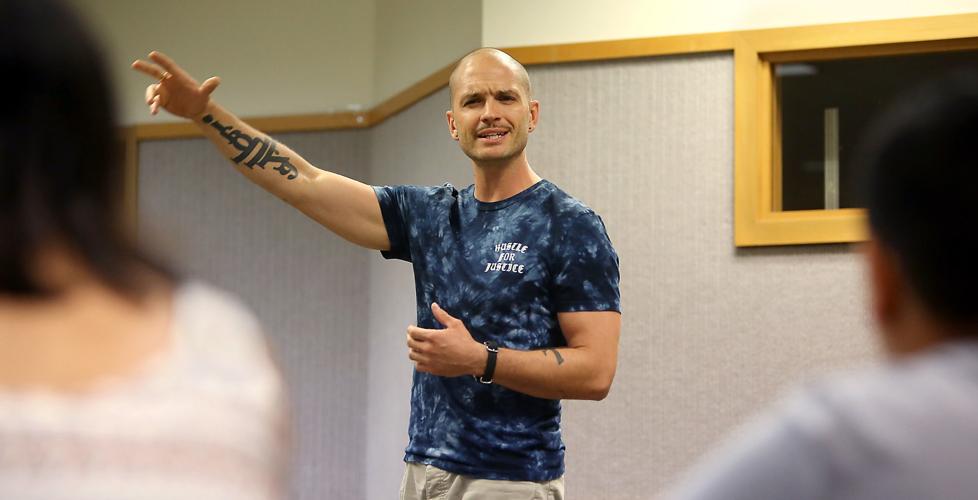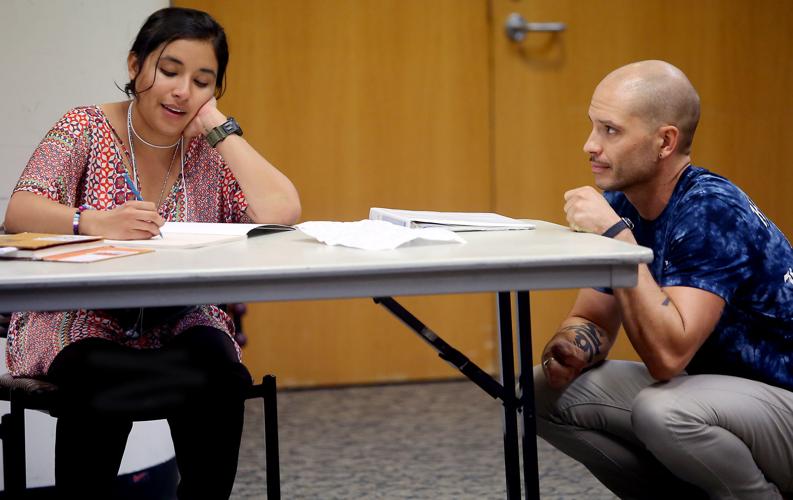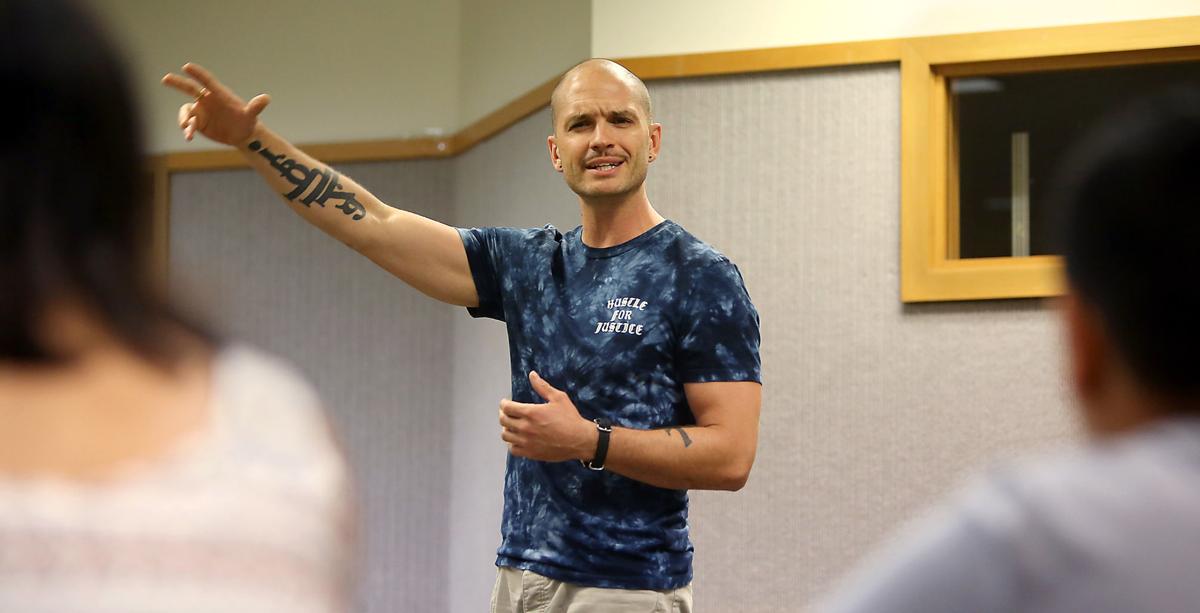On a recent rainy Friday evening, a group of young people wrote poetry. Later they were asked to recite their work in front of one another and their families in a room at the Joel D. Valdez Main Library downtown.
They were participating in a poetry workshop and open-mic, one of the programs conducted by Tucsonan Logan Phillips, the latest writer-in-residence at the Pima County Public Library.
The poet, performance artist and educator will host workshops through the middle of August at the Quincie Douglas Library, 1585 E. 36th St., and the Valencia Library, 202 W. Valencia Road.
He gives consultations during his 16-hour week for people interested in writing and he organizes events like workshops, open-mics and poetry circles.
Phillips, during his time as writer-in-residence, will focus on advising people how to find their own voices and express them through ways they feel best, regardless of their writing level. His residency ends Aug. 15.
“I’m happy to engage with people wherever they’re at and help them gain some clarity on their process. If anything, I hope that folks would leave a session with me motivated to continue to explore their own voice, whatever that may be, whatever form of writing, not just poetry,” said Phillips, who is the first poet participating as a writer-in-residence here.

Logan Phillips, right, a slam poet and educator, talks with Mercedes Marquez during a workshop for teens at the Joel D. Valdez Main Library. Phillips also works as the writer-in-residence at the Quincie Douglas and Valencia public libraries.
Phillips, who grew up in Southeastern Arizona near the border and has been a Tucson resident since 2010, said poetry is tool that Latinx, LGBTQ+, low-income people and people of color can use to deal with “the oppressive forces” that try to silence them. (Latinx is a gender-neutral term sometimes used in lieu of Latino or Latina.)
He said it begins in a place where different communities can heal and find their “inner universes” while coming together by sharing their voices.
Helene Woodhams, a literary arts librarian at the main library, said Phillips was a good choice for the program because he is known in Tucson for his talent and works.
Phillips has written about Tucson and the borderlands, and on universal themes such as time and memory. His book “Sonoran Strange” was a top pick for “Southwest Books of the Year 2015,” an annual publication of the Pima County Public Library showcasing books that focus on the region and life in it.
Woodhams says what makes Phillips a good writer-in-residence is his ability to interact with different audiences, such as his collaboration with Spoken Futures and the Tucson Youth Poetry Slam shows, as well as his experience as an educator and resident in schools across the United States and abroad.
Spoken Futures is an organization, co-directed by Phillips, that helps give youths a space for art, the exploration of identity and expression. Tucson Youth Poetry Slam is a program of Spoken Futures, where teenagers can share their words at poetry slams every third Saturday of the month at Bentley’s House of Coffee and Tea, 1730 E. Speedway.
Woodhams says she hopes Phillips’ work will result in “people who are inspired to write, people who are inspired to explore maybe aspects of their writing that they had not thought about before.”
She said a key aspect of Phillips’ work is that he is bilingual in Spanish and works in libraries on the south side.
“We want people of all ages to know that they’re welcome, to know that they will find something for them and if our writer-in-residence speaks to them on that, that’s what it’s about,” Woodhams said. “Having an artist that makes art accessible.”
And Phillips makes that accessible.
At a recent workshop, he demonstrated to those in attendance how to express themselves through poetry.
“I believe that everyday life is poetry,” Phillips told them.
Poetry doesn’t have to be written formally, following the meters and rhymes of works learned in class, if it comes from inside you, he said.
It’s a key lesson that Phillips teaches.
Melissa Vazquez is a journalism student at the University of Arizona and an apprentice at the Arizona Daily Star. Contact her at starapprentice@tucson.com.







